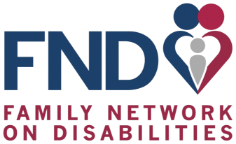INformation Hub
PROGRAM OPTIONS FOR STUDENTS WITH DISABILITIES: Career Education and Adult General Education
PROGRAM OPTIONS FOR STUDENTS WITH DISABILITIES: Career Education and Adult General Education
This brochure focuses on students with disabilities at the secondary and postsecondary (adult) levels. There are two populations of students with disabilities participating in secondary education. The first population is students with disabilities served through exceptional student education (ESE) under the requirements of the Individuals with Disabilities Education Improvement Act (IDEA 2004 ). An Individual Educational Plan (IEP) must be developed for each student served by exceptional student education. The second population is students with disabilities protected under Section 504 of the Rehabilitation Act of 1973 (504) and the Americans with Disabilities Act of 1990 (ADA), but not served under IDEA 2004. These students may require a 504 Plan. Postsecondary (adult) students with disabilities are protected under Section 504 of the Rehabilitation Act of 1973 (504) and the Americans with Disabilities Act of 1990 (ADA) and may require 504 Plans. Adults with disabilities enrolled in certain career education or adult general education programs require Adult Individual Educational Plans (AIEP). Adults with disabilities must self-identify and request accommodations/services.
The purpose of the brochure is to provide an overview of the range of program options in career education and adult general education for students with disabilities. The brochure identifies types of career education and adult general education programs and provides related information about settings (mainstreamed and specialized), types of activities, programs (course descriptions/curriculum frameworks), teacher certification, funding, reporting, benchmarks, educational plans, and expected outcomes (intent). Most students with disabilities participate in mainstream programs with their nondisabled peers. However, specialized instruction is also available to meet the individual needs of students with disabilities. Supplementary aids, services, accommodations, and curriculum modifications are provided as needed on an individual basis.
PDF, in English – https://www.fldoe.org/core/fileparse.php/7690/urlt/0070073-310913_prog-opt.pdf
SOURCE ARTICLE: Florida Department of Education

